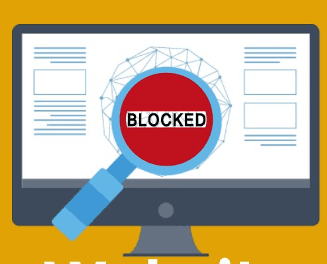Web scraping is an essential technique for extracting data from websites to gather insights and make informed business decisions. However, web scraping comes with its challenges, such as getting blocked. When you get blocked, it means that the website has detected your scraping activities and is preventing you from accessing the data.

Why Do You Get Blocked When Scraping?
Before we dive into the solutions, let's first understand the reasons why you are getting blocked when scraping:
Excessive Requests: When you send too many requests to a website in a short period, the website's server may consider it an attack and block your IP address.
IP Blocking: Websites can block your IP address if they detect that you are sending too many requests or performing scraping activities.
Bot Detection: Websites can use bot detection mechanisms to identify and block bots that are performing scraping activities.
Captchas: Websites can also use captchas to prevent bots from accessing the data.
Now that we understand why we get blocked, let's look at the solutions to overcome scraping issues when you get blocked.
Solutions to Overcome Scraping Issues
Use a Proxy Server
Using a proxy server can help bypass IP blocking and prevent the website from detecting your actual location. A proxy server acts as an intermediary between your device and the website, masking your IP address and allowing you to scrape without getting blocked.
For more information on proxy servers, you can check out our proxy server guide!
Rotate User Agents and IP Addresses
Rotate user agents and IP addresses frequently to prevent the website from detecting a pattern in your scraping behavior. This technique helps to avoid getting blocked by websites that use fingerprinting methods to detect bots and scrapers.
Implement Delay and Sleep
Delay and sleep can help simulate human-like behavior, allowing you to scrape without getting detected. Introduce a delay between requests to mimic human browsing behavior and avoid triggering anti-scraping mechanisms.
Use Captcha Solving Services
Captcha-solving services can help automate the process of solving captchas, which are often used to block scraping bots. These services can help bypass captchas and allow you to scrape without getting blocked.
Scrape Static HTML Content
Scraping static HTML content can help avoid getting blocked by websites that use JavaScript to render content. Use tools to extract data from the HTML source code rather than relying on JavaScript-rendered content.
Employ Headless Browsers
Headless browsers can help scrape dynamic content and avoid detection by anti-scraping mechanisms. These browsers can run JavaScript and mimic human-like behavior, allowing you to scrape without getting blocked.
Use APIs Instead of Web Scraping
Consider using APIs instead of web scraping, as APIs are often more reliable and easier to use than web scraping. Many websites offer APIs that allow you to extract data without getting blocked.
If you want to check out a reliable API, check out Geonode’s Scraper API!
Implement Scraping Best Practices
Adhere to scraping best practices, such as scraping only the necessary data, avoiding spamming, and respecting website terms of service. Following these guidelines can help prevent getting blocked by websites.
Build Relationships with Website Owners
Building relationships with website owners can help prevent getting blocked and improve the quality of the data you scrape. Contact website owners and explain how you plan to use the scraped data to gain their permission.
Use Scraping Tools that Emulate Human Behavior
Use scraping tools that can emulate human behavior and avoid triggering anti-scraping mechanisms. These tools can help simulate human-like clicks and scrolling, allowing you to scrape without getting blocked.
Conclusion
Scraping data is an important task for businesses to gather insights and make informed decisions. However, getting blocked when scraping can be frustrating. By understanding why you get blocked and implementing the solutions mentioned in this article, you can overcome scraping issues when you get blocked. Remember to always check the website's terms of service before scraping, and use ethical scraping practices.
Frequently Asked Questions
Scraping is legal as long as you do not violate the website's terms of service or infringe on the website's copyrights.
Can I scrape any websites?
No, not all websites allow scraping. It's important to check the website's terms of service before scraping.
What is a proxy?
A proxy is an intermediary server that allows you to access the internet through a different IP address.
What are the challenges of web scraping?
Web scraping can also pose several challenges, such as:
- Difficulty in handling dynamic or complex website structures
- Anti-scraping measures implemented by website owners
- Legal and ethical considerations
- Ensuring data quality and accuracy
- Handling and processing large amounts of data
How do I choose the right data sources for web scraping?
When choosing data sources for web scraping, it is important to consider factors such as data quality, reliability, and relevance to the project's goals. It may also be necessary to evaluate the legality and ethical implications of scraping data from certain sources.
How do I clean and preprocess the data I scraped?
Cleaning and preprocessing scraped data involves removing duplicates, handling missing or invalid data, and transforming the data into a format suitable for analysis. This can be done using various tools and techniques such as pandas, NumPy, and regular expressions.
How do I store and analyze the data I scraped?
Storing and analyzing scraped data can be done using various tools and techniques such as SQL databases, spreadsheets, and statistical software. The choice of tool depends on the specific requirements and complexity of the analysis.
What tools are available for web scraping?
There are numerous tools available for web scraping, ranging from programming languages such as Python and R to specialized software tools such as Scrapy, Beautiful Soup, and Selenium.
How do I ensure ethical web scraping practices?
To ensure ethical web scraping practices, it is important to obtain explicit consent from website owners before scraping their data, respect website terms of service and robots.txt files, avoid scraping private or confidential data, handle errors and exceptions gracefully, and ensure data quality and accuracy.


